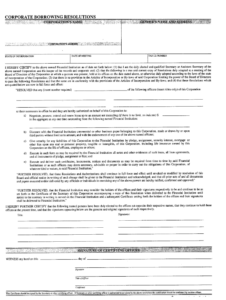In the era of digital transactions, securing customers’ personal and sensitive information is paramount for businesses. As an online seller, having a comprehensive privacy policy is crucial to gain customers’ trust and comply with regulations. A well-crafted privacy policy template for ecommerce websites serves as a foundation for safeguarding data privacy and building a trustworthy brand. This article delves into the key components of a robust privacy policy template for ecommerce, guiding you in creating a transparent and legally compliant document.
A privacy policy template for ecommerce typically includes various sections that outline a business’s data collection, usage, and disclosure practices. It addresses how customer information is gathered, stored, shared, and protected. Furthermore, by providing a clear understanding of how their data will be handled, a privacy policy fosters customer confidence and trust. Additionally, it helps businesses avoid legal complications and safeguard their reputation.
Essential Elements of a Privacy Policy Template for Ecommerce
Transparency:
Your privacy policy should provide transparent and straightforward explanations of how you collect, use, and disclose personal data. This includes specifying the types of information you gather, the purposes for which it will be used, and the parties with whom it may be shared.
Compliance with Regulations:
Ensure that your privacy policy adheres to relevant data protection regulations and industry standards. Complying with laws such as the General Data Protection Regulation (GDPR) or the California Consumer Privacy Act (CCPA) is essential to avoid legal penalties and maintain customers’ trust.
Consent and Opt-Out:
Obtain clear consent from customers before collecting and processing their personal data. Offer opt-out or unsubscribe options to allow customers to withdraw their consent or control the usage of their information.
Data Security:
Describe the security measures you have implemented to protect customers’ personal information from unauthorized access, use, or disclosure. This may include encryption, firewalls, and regular security audits.
Key Sections of a Privacy Policy Template for Ecommerce
Data Collection:
Detail the types of personal information you collect, such as names, addresses, email addresses, and payment information. Specify the methods used to collect this data, such as online forms, cookies, and third-party services.
Usage of Data:
Explain how you utilize the collected data to fulfill orders, provide customer support, improve products and services, and conduct marketing activities. Make sure to highlight any potential risks associated with data processing.
Data Sharing and Disclosure:
If you share or disclose customers’ personal information with third parties, such as payment processors or marketing platforms, disclose this clearly. Outline the circumstances under which data may be shared and the measures taken to protect it.
Data Retention and Deletion:
Specify the duration for which you retain customers’ personal data. Provide information on how and when you delete or anonymize data securely once it is no longer necessary for the specified purposes.
Conclusion
A robust privacy policy template for ecommerce is an indispensable tool for building customer trust, complying with regulations, and safeguarding your business’s reputation. By implementing transparent and comprehensive data protection practices, you can create a secure and trustworthy online shopping experience for your customers.
Remember to regularly review and update your privacy policy to reflect any changes in data collection, usage, or disclosure practices. This ensures that your policy remains compliant with evolving regulations and industry best practices, fostering a sense of confidence and security among your customers.
FAQ
What should I include in the “Data Collection” section of my privacy policy?
In the “Data Collection” section, you should specify the types of personal information you collect (e.g., names, addresses, email addresses, payment information), the methods used to collect this data (e.g., online forms, cookies, third-party services), and the purposes for which you collect this data.
How can I ensure compliance with data protection regulations?
To ensure compliance with data protection regulations, you should regularly review and update your privacy policy to reflect any changes in the regulations or industry best practices. You should also implement appropriate security measures to protect customers’ personal information from unauthorized access, use, or disclosure.
What should I do if I need to share customers’ personal information with third parties?
If you need to share customers’ personal information with third parties, you should disclose this clearly in your privacy policy. You should also outline the circumstances under which data may be shared and the measures taken to protect it.

